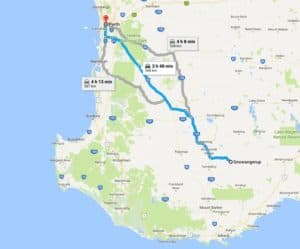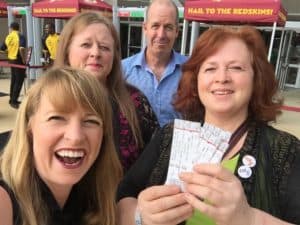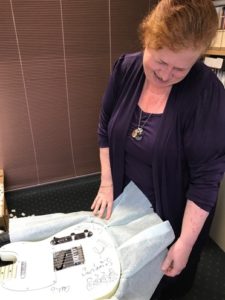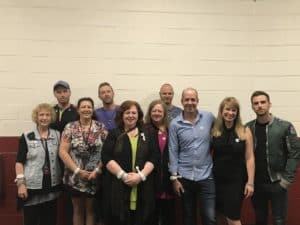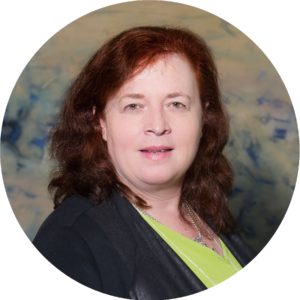In the Spotlight: Group Therapy
by Dr. Alisha Brosse, Sutherland Bipolar Center Director
This is the next installment in our series highlighting each of the clinical services that we offer at the Sutherland Bipolar Center.
We offered our first session of group therapy in 2005. A lot has changed in the intervening 13 years. We did major overhauls of our curriculum in 2008 and again in 2011. Since then, we have continued to make more minor adjustments based on our experience, feedback from participants, and the latest research findings. Here’s what has remained constant: group members regularly tell us that they benefit from learning skills with others who share similar struggles.
Our skills-training group is called “The ABC’s of Living Well with Bipolar Disorder: Acceptance-based, Behavioral and Cognitive Strategies.” It is comprised of five modules, each 4-7 sessions long. The group meets weekly for 90 minutes. It is co-facilitated by two therapists, and there are a maximum of 10 group members. A typical session starts with a grounding exercise. We then discuss the practice that was assigned the previous week: what roadblocks did people encounter? What successes did they experience? Next, we introduce and practice new skills (or the next step in a skill previously introduced). We close with assigning practice for the upcoming week.
The skills that we teach are primarily derived from cognitive behavior therapy (CBT) and acceptance and commitment therapy (ACT). In the Behavioral Strategies module, group members learn how to act opposite of their emotions in order to stop (or even reverse) a mood spiral. They also learn to use their values, rather than their mood, to guide their actions. In the Cognitive Strategies module, people learn to better recognize mood-driven thoughts, like the self-deprecating or bleak thoughts of depression, or the grandiose ideas that can accompany mania. They learn how to challenge their thoughts and make room for more realistic or helpful thoughts. We teach an alternate way to cope with thoughts in the Acceptance and Defusion Strategies module: group members learn how to create some distance between themselves and their thoughts, not listening so intently to, or taking so seriously, everything their minds tell them. We also focus in this module on accepting, rather than skilling away, uncomfortable internal experiences (i.e., thoughts, feelings, sensations) as a means of reducing struggle and suffering. The Mindfulness and Self-Compassion module teaches mindfulness as a tool to stay present (rather than ruminating about the past or worrying or eagerly anticipating the future), and increase self-compassion. Finally, our newest addition is a module on Sleep and Mood Regulation Strategies. This module explores the connection between sleep and mood, teaches strategies to treat insomnia, and encourages participants to keep a regular sleep-wake schedule to help stabilize mood.
People can complete all of the modules or only the ones that appeal to them. Sometimes patients elect to repeat modules. It can be helpful to be exposed to the same material when in a different mood, and to re-learn the earlier skills after having learned the later ones. In 2012 it became clear that some people were repeating modules even though they had a high level of mastery of the skills. When we inquired, we learned that they did not want to give up the support they derived from the weekly group. Thus, in 2013 we launched the “XYZ’s of Living Well with Bipolar Disorder,” a weekly group for “graduates” of the ABC’s group. This group is much less structured, but continues to emphasize research-based skills to better manage bipolar disorder. Participants coach each other on the skills that seem most relevant to what is going in their lives at the moment.
Here’s what some of our patients have said about their group therapy experience at the Sutherland Bipolar Center:
“I love group! … I really appreciate how well the therapists understand bipolar disorder. Also appreciate [the] therapists participating in activities.”
“I can’t believe I’ve been bipolar for as long as I’ve been and haven’t been doing this kind of treatment.”
“[This is a] new experience of having skills-based therapy. The therapists have been great!”
To see if you qualify for group therapy at the Center, call us at 303/492-5680.


